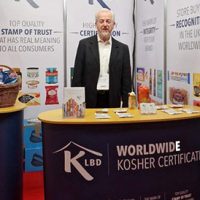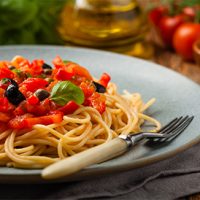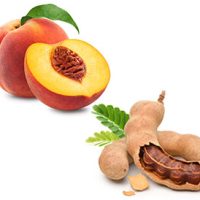The Natural & Organics Show (NOPEX) will be taking centre stage once more at…

Ingredients for German Success
Germany is the largest food producer in Europe. Food and beverage production is the country’s fourth largest industry sector, generating production figures of €150 billion annually. Many factors contribute to this impressive performance: Germany offers a particularly positive market environment for producers of food ingredients and additives of almost all types. The industry is characterized by small and medium-sized companies (Mittelstand) and new products are constantly developed which address the demands of the domestic and export markets. Germany still has the lowest food prices in Europe as a result of intense competition between so-called ”hard discounters” and the grocery retail segment.
Contrary to any perception that German cuisine is confined to stereotypical favourites, the reality is that new cultural influences, trends and growing exports have led to a vibrant demand for new ingredients and formulations. These include flavour enhancers, sweeteners, stabilizers, emulsifiers and fragrances. It is stated that national and international companies, operating in almost every sub-segment of the German food and beverage market, produce more than 170 thousand different food products.
The result of growing consumer awareness, the needs of an ageing population and insistence for health and wellness products has also influenced the well-established convenience, confectionery, frozen and chilled food sectors. Mintel research estimates as many as 73% of German consumers believe that the health promoting benefits of natural foods such as fruit and vegetables are preferable to the added benefits of functional foods. Asparagus is commonly regarded as the ‘vegetable of kings’ in Germany and the medicinal properties of fresh ground horseradish to help the immune system and regulate blood pressure receive as much recognition as its distinctive taste.
Other trends making an impact on the German food industry are labelling and sustainability. Currently most companies have a sustainability strategy which is evident from cultivation through to food processing. Retail outlets are increasingly demanding a sustainability assurance or label from their suppliers.
Germany stands at the very forefront of food and beverage market development as it continues to meet the international demand for safe and healthy food. German food manufacturers produce a vast range of products utilising a wide spectrum of techniques and processes. In this competitive market, it is not surprising to learn that producers often seek a customised colour palette for new food products and the German company Ringe Kuhlmann has perfected the requisite production technology skills, including a ‘Scan and Match’ app to apply individual solutions for virtually any application. KLBD certified Ringe Kuhlmann epitomises the global emphasis placed on food and colour and maintain: ‘consumers throughout the world have one thing in common – they eat with their eyes’.
Another KLBD certified company, All Organic Treasures, is based in the German town of Kempen. Family run since its inception in 2003, it specialises in the production of organic oils, fats and proteins. The company is constantly introducing new products, such as their pioneering organic pomegranate oil; to quote CEO, Fabian Breisinger, in a recent interview: ‘Our vision is to live in a world in which all products consumed by humans are natural and unpolluted’. It is the company’s expectation that increased business will flow from the growing trends of free-from, vegetarian and vegan products, with more natural products being made without solvents or chemicals.
Herbstreith and Fox, otherwise known as the ‘pectin specialists’ spearhead production of pectin for the food industry. In addition to its traditional use for jam and other preparations, this KLBD certified company has produced a unique pectin to enable the manufacture of confectionery with innovative textures like vegan marshmallows, and firm-elastic fruit gums with the mouth-watering flavours of vanilla, chocolate and caramel.
The flavours and fragrances company, Curt Georgi, can trace its roots as far back as 1875 and remains a family business. Based in Leipzig, Curt Georgi specialises in the production of highly effective liquid flavour concentrates created from a blend of flavouring chemicals, essential oils and extracts and has produced the innovative ‘Geocaps’ range to enable the optimum tasting experience. The product range not only meets the strict quality controls imposed by the German and European Union regulators, but also meets the criteria for certification by KLBD. Dusseldorf based Keller & Bohacek is a further example of a company which has succeeded in the formulation of additives for the international market while also being compliant with KLBD.
As a location for the production of chemicals and associated process industries, Germany is a global heavyweight, ranking first in Europe. KLK Emmerich, (part of KLK Oleo group), located close to the border with the Netherlands, manufactures a range of fatty acids, hydrogenated fatty acids and glycerine by splitting of vegetable oils.
Germany ranks amongst the most attractive business locations in Europe and is a natural location for some of the world’s largest trade shows. Frankfurt, this November, will be hosting the biennial Health Ingredients Europe and Natural Ingredients exhibition and it looks to attract record numbers of international and domestic trade visitors. This all-embracing flagship event for food professionals is recognised globally as the ideal opportunity to demonstrate the newest products and natural food trends from the world over.




